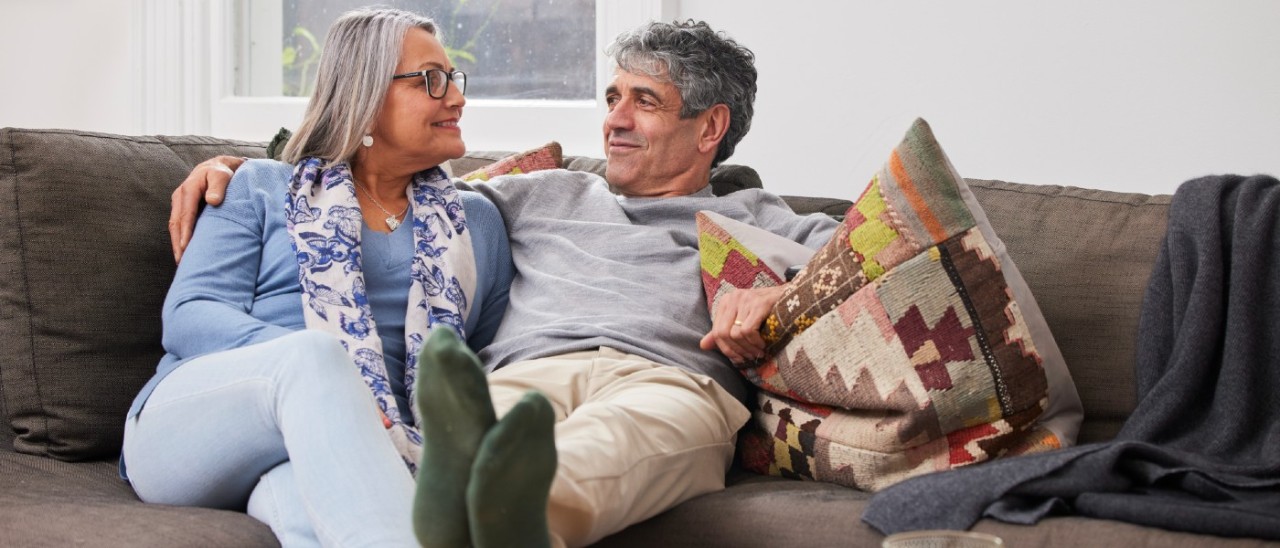While the idea of a slower pace, fresh country air and more affordable housing might be appealing, regional life comes with its own set of challenges and adjustments. Before you trade in your tram commute for a tree change, here's what you need to know.
Things to consider when downsizing your home for retirement

Contemplating downsizing to a smaller property? Here are some key things to think about to make an informed decision about downsizing.
If you're not utilising the space of a larger home, downsizing can be the gateway to less stress and a more financially sustainable lifestyle.
Have you fully considered downsizing?
- Downsizing to an apartment: what you need to know
- Open house inspection tips for buyers and sellers
- How to furnish your new home for less
- What to consider before making a tree-change to regional Victoria
- The must-do repairs and renovations before selling your home
- 6 tips for choosing a real estate agent
- How to tell if your home is adequately insured
What to think about when downsizing
1. The stress of selling
Selling a house can be one of life’s most stressful experiences – and costly too. Typical agent fees are around two to three per cent of the sale price in Victoria, according to online real estate agent comparison platform Agent Select, an RACV partner. That's why choosing a real estate agent who knows the market in your area and whom you trust can help mitigate the angst.
A comparison platform can help you identify the top-performing agents in a specific area, which then gives you a shortlist of the top two or three. These agents are invited to make their pitch to the vendor with a simple one-page breakdown of fees and charges, including photography and advertising.
2. Unexpected expenses and savings
Every investment decision has a cost. Stamp duty alone has a significant impact on buying a house. If you were buying a $600,000 property, stamp duty would currently total more than $31,000, according to the State Revenue Office Victoria.
When contemplating the costs involved in downsizing, don’t forget that incidentals can make a difference to your ledger over time. For instance, it costs much less to heat and cool a smaller home. Liberation from garden maintenance and cleaning a large house can represent a small fiscal fortune as well. Council rates are also likely to represent a healthy saving. Newer properties may also feature solar panels or a solar battery to reduce energy bills, or even electric vehicle charging.
It's also worth noting that moving to a smaller property may result in a lower sum insured for both the building and contents and contribute to a more favorable premium. However, several factors can influence your home insurance premium, including the age and condition of your home, its location, building materials, and coverage limits.
If you move into a townhouse that comes under a strata scheme, you'll be required to be part of a owners’ corporation that has insurance cover for all buildings and common property, while being responsible for your own contents insurance.
If you’re considering downsizing to an apartment, make sure you check the body corporate fees, which will be considerably higher if the complex includes amenities such as a swimming pool and a lift.
3. Tax and pension implications
After you’ve sold your home, you may have a few investment options to consider. According to the ATO, a primary residence is an exempt asset for age pension purposes, but selling it to release cash may reduce or eliminate eligibility for the age pension.
A federal government tax incentive allows some downsizers to top up their superannuation by releasing equity from the family home, and there may be some other ways to lessen the hit, including an investment known as a life income stream.
The bottom line is that unless you’re financially savvy, it’s important to get professional advice from a licensed investment adviser or accountant to guide you through this complex area.

Many downsizers are motivated by the need to find more manageable properties.
4. The chance to future-proof your new home
For downsizers at the retirement end of the property cycle, finding a home or living arrangements suitable to the needs of old age is crucial. If you’re thinking of moving in with your adult children, for instance, first test the waters by spending meaningful time in each other’s company on a day-to-day basis. Get a professional if you need to make any modifications to make the home safer.
The layout of the home is important, too. Consider the suitability of a home with stairs for anyone heading into their seventies and eighties. And before deciding to buy into that gorgeous seaside village where you’ve enjoyed holidaying for years, it may be wise to rent a place there for half a year before making the big jump.
5. Granny flat and small second dwelling legislation in Victoria
Granny flats, now known as small second dwellings, can be a useful addition for housing dependents who want to be close by, but enjoy the privacy of their own space.
These small second homes on existing properties come with a few legal requirements:
- It must be on the same lot as an existing home
- It must be the only small second home on the lot
- It must not be subdivided from the main home
- Its floor area must be 60m² or less
- It must have a kitchen, bathroom and toilet
- It cannot be connected to a reticulated natural gas supply.
If you plan to build a new granny flat, you will need a building permit and sometimes a planning permit as well. Make sure to check your local council’s guidelines for any further restrictions and guidelines.
For insurance purposes, small second dwellings are considered ‘home improvements’ to your property and should be included in your regular building and contents insurance sum insured amount.
6. Sense of community
Many downsizers are motivated by the need to find more manageable properties, but people shouldn't discount the rewarding intangibles of community. Proximity to family, friends, sporting and social clubs is important, and it can be hard to establish a new social circle, particularly when you’re older. A lifestyle club can be a way to meet like-minded people, enjoy new hobbies, and attend food, arts and sporting events. Again, trying before buying can give a realistic idea of what living in a particular suburb or town is like.
On the plus side, many modern high-spec apartment developments aimed at downsizing owner-occupiers offer communal facilities such as rooftop gardens, outdoor barbecue areas and even wine cellars, which can be a great way to meet the neighbours and become part of your new community. In fact, the opportunity to expand social networks can be one of the benefits of downsizing.
7. Need for personal space
How much personal space do you need? Do you want to live solo – or, if you’re moving with other people such as a partner, child or even a friend, do you need an ensuite, walk-in robe, study nook or a small sitting room to call your own?
It’s worth thinking about how much you entertain, too. If you love hosting dinner parties, you’ll need space for a dining table, and if you’re making a sea-change or tree-change, you might want to factor in a spare bedroom for all those friends who’ll be clamouring to visit.
8. Adapting to lifestyle changes
Downsizing is often synonymous with apartment living – and judging by the number of high-spec apartments aimed at the downsizing market, Australians have lost their traditional aversion to this European style of living.
Before you embrace the considerable freedom of the lock-and-leave lifestyle, stop to consider the proposition of privacy and neighbour noise. Moving from your own freestanding home to sharing a party wall with strangers can be confronting (if soundproofing is inadequate), and doubly so if you choose the wrong block and find yourself subjected to holiday rentals and late-night parties. Due diligence, including casing out the area on a Saturday night, may avoid a lot of sleepless nights and angst later on.
9. Reducing your possessions
When downsizing, the amount of 'stuff' you possess is likely to require a heavy-handed cull. It's recommended to triage your possessions into three categories: definitely leave, maybe leave and definitely take.
10. Finding the right furniture fit
If you’re downsizing to save money, you probably won’t want to take a chunk out of your profit by having to buy new furniture to fit the new space. Take a step back from the initial excitement of embracing a new lifestyle, and before committing to a new and modern abode, think about how your collection of antique furniture would look in such an ultra-modern setting. If it’s too much of a mismatch, it might not be quite right – for your furniture or for you.
11. Alternatives to downsizing
If you’re feeling pushed reluctantly into downsizing, it’s worth pausing to weigh up different ways of living. There may be other options.
If you’re suffering empty nest syndrome and an unsettlingly quiet house, you might consider renting out a spare bedroom to generate some extra cash, as well as company. It’s also becoming increasingly popular for retirees to share a home. Duplexes are another great way to stay close to your loved ones while enjoying your own privacy.
Alternatively, renting out your home long-term and striking out on the wide-open road as a grey nomad could be another winning idea.
The information provided is general advice only. Before making any decisions please consider your own circumstances and the Product Disclosure Statement and Target Market Determinations. For copies, visit racv.com.au. As distributor, RACV Insurance Services Pty Ltd AFS Licence No. 230039 receives commission for each policy sold or renewed. RACV Home Insurance issued by Insurance Manufacturers of Australia Pty Ltd ABN 93 004 208 084 AFS Licence No. 227678.


